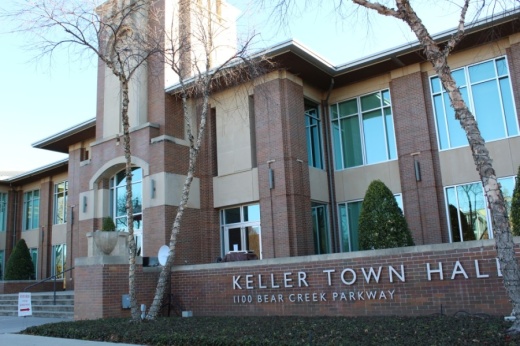“It’s been quite a 48 hours,” he said during a special City Council meeting Feb. 16. “We took what we thought was just going to be a road, snow issue, maybe some closing of Town Hall, and we expanded that to deal with the power issue ... but it didn't end at the power. Then we had a water issue.”
By that point, some households in the city had been without power for up to 40 hours, he said.
Sarah Hensley, administrative services manager and liaison to the city’s two utility providers, Oncor Electric Delivery and Tri-County Electric Cooperative, explained to City Council on Feb. 16 what she had been informed of by Oncor’s area manager: Utility companies follow direction by the Electric Reliability Council of Texas on how much power can be restored to the grid at one time, which is based on how much power can be generated.
“A lot of the outages, it seems like, started out possibly as rolling outages, but turned into long-term outages,” she said, “because when they tried to pull up the rolling outages, they blew a transformer or something. And then on top of that there are outages that were a direct result of the weather.”
Neither Oncor nor Tri-County have been able to provide outage maps that delineate which kind of outage residents might be experiencing, she said, though Tri-County had informed her that generation would likely increase as the weather warms Feb. 19.
"ERCOT and the utility companies, particularly Oncor, have been very unreliable during these trying times," Mayor Armin Mizani said in a statement Feb. 16. "This is unacceptable."
The city announced Feb. 17 that an Oncor crew told leaders that above-ground portions of the city’s electrical grid had been restored to working order, and work had begun on restoring the underground portions of the grid. Despite that progress, the city said residents should continue to expect rolling blackouts until ERCOT announces that service can return to normal.
The water issue began when Fort Worth treatment pumping facilities failed in the face of power outages and freezing temperatures. Keller, which imports water from the larger city, depleted its reserves, and residents lost access to water Feb. 16.
“There was a point where we were literally out of water,” Director of Public Works Alonzo Liñán said during the meeting. “Our tanks had depleted. Whatever water existed was just whatever happened to be in the pipes, and whatever pressure existed is whatever happened to be present because it was going downhill.”
Liñán said Fort Worth began pumping water to Keller and other cities again around 5 p.m. Feb. 16, and Keller reported early Feb. 17 that city water tanks were 20% full. City officials asked residents to continue to conserve water while the water system refills.
"Keller right now is seeing water use similar to the rates we see on peak summer days," a Feb. 17 statement said. "This is stalling our efforts to get our water system refilled and back to appropriate pressure."
The damage to treatment facilities required Fort Worth to put out a boil water notice for its residents and the residents of nine cities that purchase water from Fort Worth, including Keller. As of Feb. 17, that notice is still in place.
City officials also addressed other infrastructure issues at the Feb. 16 meeting, including the storm’s effect on roadways and natural gas.
As part of the Feb. 17 statement, the city of Keller asked residents to conserve natural gas, a request from provider Atmos Energy. Hensley said at the Feb. 16 meeting that Keller officials waited longer than some other cities to make that announcement.
“We had been, up until now, hesitant to put out anything to our residents because we knew there was a lot of them whose only source of heat for the last couple of days has probably been their gas fireplace,” she said.
Liñán explained that the city’s major roadways and intersections had been cleared by city snowplows but asked that residents stay off the roads as much as possible, in light of additional snow and ice expected Feb. 17.
“An easy way to understand the impact of the light powdery snow that we experienced is: This is how glaciers are made,” he said. “You take the light powder snow you pack it down and then the weight of additional snow packs it down. Instead of waiting for time to do that, we had a lot of cars, a lot of heavy vehicles that were doing it, and that's why it turned into ice so quickly.”
City officials asked residents to call the public works department 817-743-4200 to report events such as broken water pipes or to ask questions about the power outages. 911 should only be used for active emergencies.





